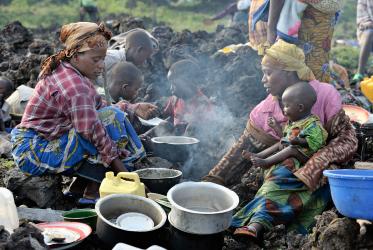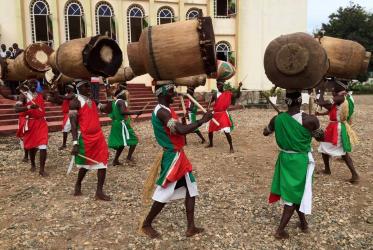Displaying 301 - 320 of 386
Tveit in South Africa: “ We know. We dare. We can.”
12 June 2016
Winners of WCC photo contest announced
09 May 2016
WCC conference explores ecological injustice in Uganda
21 April 2016
Faith at AIDS 2016: WCC preparing for faith in action
10 March 2016
Calls for peace in Burundi grow louder
10 March 2016
Voices of faith speaking to voices of fear
03 February 2016










